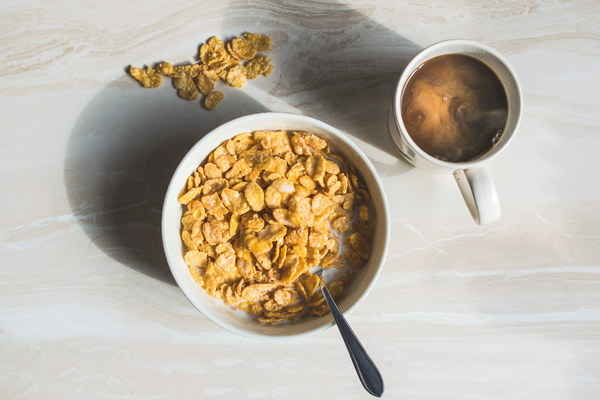Boost Your Stomach Health with the GutFriendly Power of Cauliflower
Introduction:
Cauliflower, a versatile and nutritious vegetable, has gained popularity not only for its culinary uses but also for its numerous health benefits. One such benefit is its ability to promote gut health, making it an excellent choice for those looking to improve their digestive well-being. In this article, we will explore how cauliflower can be a stomach-friendly food and why it should be included in your diet.
1. High in fiber:
Cauliflower is an excellent source of dietary fiber, which plays a crucial role in maintaining a healthy gut. Fiber adds bulk to the stool, making it easier to pass and preventing constipation. Additionally, fiber helps to keep the digestive system moving, reducing the risk of developing diverticular disease and colorectal cancer.
2. Promotes good bacteria growth:
Cauliflower contains prebiotic compounds that act as food for the good bacteria in your gut. These beneficial bacteria, such as Bifidobacteria and Lactobacilli, help to maintain a healthy balance of gut flora, which is essential for digestion and overall health. By feeding these good bacteria, cauliflower can improve gut function and reduce the risk of developing gastrointestinal issues.
3. Rich in vitamins and minerals:
Cauliflower is packed with essential nutrients such as vitamin C, vitamin K, and potassium, which are vital for maintaining a healthy digestive system. Vitamin C acts as an antioxidant, protecting the gut lining from oxidative stress and inflammation. Vitamin K is necessary for blood clotting and plays a role in maintaining the integrity of the gut lining. Potassium helps to regulate fluid balance in the body, which is crucial for proper digestion and absorption of nutrients.
4. Anti-inflammatory properties:
Inflammation is a common cause of gastrointestinal issues, such as irritable bowel syndrome (IBS) and Crohn's disease. Cauliflower contains anti-inflammatory compounds that can help to reduce inflammation in the gut. These compounds may help alleviate symptoms associated with these conditions and improve overall gut health.

5. Low in calories and fat:
Cauliflower is a low-calorie, low-fat food that can be a healthy addition to your diet. By incorporating cauliflower into your meals, you can help manage your weight and reduce the risk of developing obesity-related gastrointestinal problems, such as gastroesophageal reflux disease (GERD) and gallstones.
6. Versatile cooking options:
Cauliflower can be prepared in numerous ways, making it easy to incorporate into your diet. Roasting, steaming, boiling, or sautéing cauliflower can help retain its nutrients while adding a delightful flavor to your meals. By using cauliflower as a substitute for high-carbohydrate foods like rice or potatoes, you can enjoy a nutritious and stomach-friendly dish.
Conclusion:
Incorporating cauliflower into your diet can provide numerous benefits for your gut health. Its high fiber content, prebiotic properties, and essential nutrients make it a stomach-friendly food that can help improve digestion, reduce inflammation, and support a healthy gut flora. By adding this versatile and nutritious vegetable to your meals, you can take a significant step towards a healthier digestive system and overall well-being.









